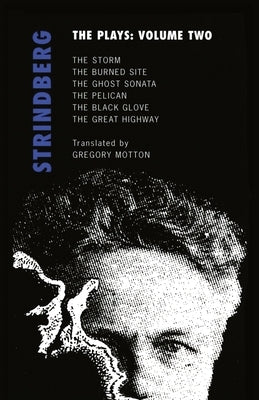Description
Includes The Chamber Plays (The Storm, The Burned Site, The Ghost Sonata, The Pelican, The Black Glove) and The Great Highway
August Strindberg, the great Swedish dramatist and author, had a profound influence on European drama. His career was particularly marked by a desire to experiment with and redefine theatre. With roots in psychological naturalism, he was nevertheless fascinated by symbols, dreams and fantasies.His later plays anticipated and paved the way for surrealistic, expressionistic and absurdist theatre.This, the second volume of the plays of Strindberg publishedby Oberon Books, contains the Chamber Plays (The Storm, The Burned Site, The Ghost Sonata, The Pelican, The Black Glove) - some of the most characteristic and original of Strindberg's works - as well as Strindberg's last great play, written shortly before his death. This is The Great Highway, one of the expressionist masterpiecesof modern drama. A man walks the Alps encountering feuding millers, a hermit, a murderer, a Japanese man resolved to burn himself to death to cleanse him of his existence, and a little girl waiting for her father to return. In the end he seeks to justify his life to an unknown woman whilst coughing blood into his handkerchief. The Tempter himself arrives with an offer from the Grand Duke.... Gregory Motton's translations combine an unprecedented faithfulness to Strindberg's original texts with the natural fluency of one of our most linguistically able contemporary playwrights.Author: August Strindberg
Publisher: Oberon Books
Published: 09/01/2001
Pages: 304
Binding Type: Paperback
Weight: 0.86lbs
Size: 8.32h x 5.12w x 0.70d
ISBN13: 9781840020861
ISBN10: 1840020865
BISAC Categories:
- Drama | European | General
About the Author
August Strindberg (1849-1912) is best-known for his misogyny and as the author of Miss Julie (1889). His first success came as a novelist and autobiographer. His plays (and he wrote over sixty) were deeply controversial in their time and still are to some extent. They range form bold naturalism (e.g. The father, 1887) to an entralling expressionism (e.g. The Ghost Sonata, 1907).

